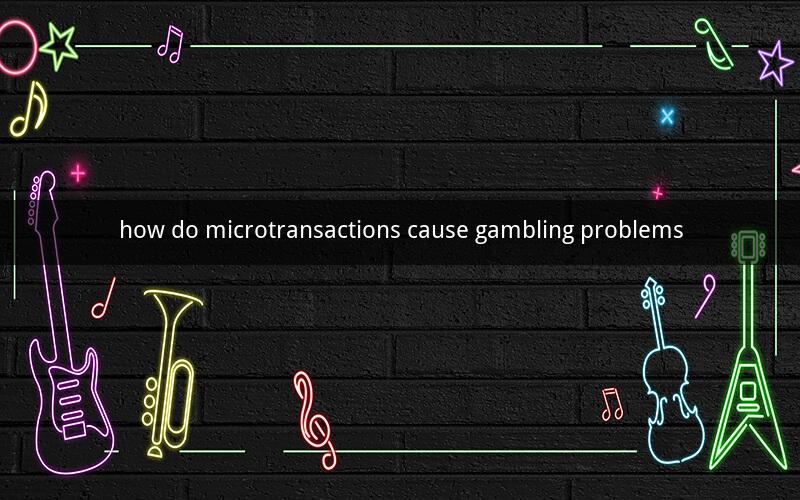
Table of Contents
1. Introduction to Microtransactions
2. Understanding Gambling
3. The Intersection of Microtransactions and Gambling
4. The Psychological Aspect
5. The Financial Aspect
6. The Social Aspect
7. The Legal and Ethical Implications
8. Case Studies
9. Prevention and Mitigation Strategies
10. Conclusion
1. Introduction to Microtransactions
Microtransactions refer to small, incremental payments made by users for digital goods or services within a game or application. These transactions can range from a few cents to a few dollars and are often used to enhance the user experience or unlock additional features. However, the ease and frequency of microtransactions have raised concerns about their potential to contribute to gambling problems.
2. Understanding Gambling
Gambling involves risking money or something of value on an event with an uncertain outcome, with the intent of winning more money or something of value. While gambling can be a form of entertainment, it can also lead to addiction and financial, psychological, and social problems.
3. The Intersection of Microtransactions and Gambling
The intersection of microtransactions and gambling lies in the nature of these transactions. Like gambling, microtransactions involve risk, reward, and the potential for addiction. Additionally, the design and implementation of microtransactions can be similar to gambling mechanisms, such as loot boxes or gacha systems.
4. The Psychological Aspect
Microtransactions can trigger the same psychological mechanisms as gambling, such as the thrill of the chase, the anticipation of a reward, and the feeling of control. This can lead to a sense of euphoria and the desire to continue playing or spending, even when it is no longer enjoyable.
5. The Financial Aspect
The financial aspect of microtransactions is a significant concern. Many users may not realize the true cost of these transactions, as they are often small and spread out over time. This can lead to overspending and financial problems, especially for vulnerable populations such as children or individuals with gambling problems.
6. The Social Aspect
Microtransactions can also have social implications. They can create a sense of inequality among players, as those who spend more have access to more features or advantages. This can lead to social isolation and resentment among those who cannot afford to spend as much.
7. The Legal and Ethical Implications
The legal and ethical implications of microtransactions are also a concern. Some argue that these transactions are deceptive and manipulative, as they may not be clearly disclosed or understood by users. Additionally, there are concerns about the potential for exploitation of vulnerable populations.
8. Case Studies
Several case studies have highlighted the potential for microtransactions to contribute to gambling problems. For example, a study by the University of Sydney found that children who spent money on microtransactions were more likely to develop gambling problems later in life.
9. Prevention and Mitigation Strategies
Several strategies can be implemented to prevent and mitigate the potential for microtransactions to cause gambling problems. These include:
- Clear disclosure of the cost and nature of microtransactions
- Implementing spending limits and parental controls
- Providing education and resources on responsible gaming
- Developing and enforcing regulations to prevent deceptive practices
10. Conclusion
Microtransactions have the potential to contribute to gambling problems, particularly when they are designed and implemented in a way that resembles gambling. By understanding the psychological, financial, and social implications of microtransactions, and implementing appropriate prevention and mitigation strategies, we can help protect users from the potential harm of these transactions.
Questions and Answers
1. What are microtransactions?
- Microtransactions are small, incremental payments made by users for digital goods or services within a game or application.
2. What is gambling?
- Gambling involves risking money or something of value on an event with an uncertain outcome, with the intent of winning more money or something of value.
3. How can microtransactions contribute to gambling problems?
- Microtransactions can contribute to gambling problems by triggering the same psychological mechanisms as gambling, such as the thrill of the chase and the anticipation of a reward.
4. What are the financial implications of microtransactions?
- The financial implications of microtransactions include the potential for overspending and financial problems, especially for vulnerable populations.
5. What are the social implications of microtransactions?
- The social implications of microtransactions include the potential for social isolation and resentment among those who cannot afford to spend as much.
6. What are some prevention and mitigation strategies for microtransactions?
- Some prevention and mitigation strategies for microtransactions include clear disclosure of costs, spending limits, parental controls, and education on responsible gaming.
7. Are microtransactions always harmful?
- Microtransactions are not always harmful, but they can be when designed and implemented in a way that resembles gambling.
8. Can microtransactions be addictive?
- Yes, microtransactions can be addictive, especially when they trigger the same psychological mechanisms as gambling.
9. What can parents do to protect their children from microtransactions?
- Parents can protect their children from microtransactions by implementing spending limits, monitoring their children's online activities, and educating them about responsible gaming.
10. How can developers design microtransactions responsibly?
- Developers can design microtransactions responsibly by clearly disclosing costs, avoiding deceptive practices, and providing options for users to control their spending.